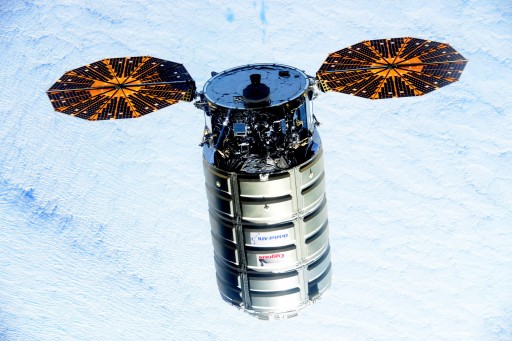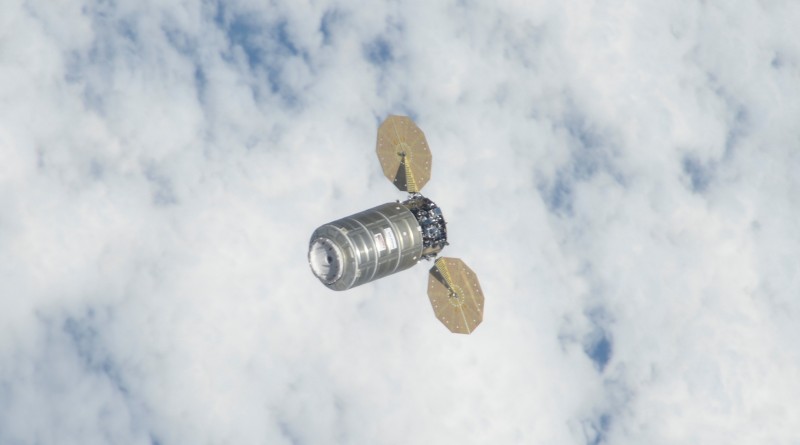ISS Operations Update – December 9, 2015

Cygnus Rendezvous & Capture:
Experiments:
Differential Effects on Telomeres and Telomerase in Twin Astronauts Associated With Spaceflight [Telomeres are repetitive nucleotide sequences at each end of a chromatid serving the function of protection of the chromosome from deterioration and preserving the information-carrying sequences of the DNA. Aging on Earth is associated with the shortening of these repetitive sequences and can therefore be used as a biomarker of aging and age-related pathologies such as cancer and cardiovascular deterioration. This biomarker is able to capture the interplay between genetics and lifestyle factors – with two subjects with similar genetics (twins), the lifestyle factors (one in space, one on Earth) increase in their importance in the effect on the telomeres. The unique aspect of this study is that it reflects the combination of exposures such as radiation, and experiences – nutritional, psychological, physical and otherwise. The study will utilize blood sampling pre-flight as reference, during flight to asses short-term changes and for a lengthy post-flight period to look at long-term effects.]
Salivary Markers – Saliva & Urine Sample Collection [This study uses samples acquired at various points in a crew member’s mission to measure markers of latent viral reactivation in conjunction with salivary antimicrobial proteins and immune cell functional assays. This will help assess the risk of adverse health events due to an impaired immune system. The immune system is known to degrade in crew members in microgravity and prolonging a robust immune system during future flights will be important to ensure mission success.]
NeuroMapping Experiment Ops [Spaceflight Effects on Neurocognitive Performance: Extent, Longevity, and Neural Bases (NeuroMapping) examined whether long-duration exposure to microgravity causes changes in the brain, including brain structure and function, motor control, and multi-tasking, as well as measuring how long it takes for the brain and body to recover from those possible changes. The experiment uses MI and FMRI scans before and after spaceflight and computer-based Mental Rotation Tests while on ISS.]
Microbiome [The study will investigate the impact of long duration space flight on both, the human immune system and an individual’s microbiome. The microbiome is the totality of microbes that live in and on the human body at any given time and influence human physiology. Some consider the microbiome to be a “newly discovered organ” due to its importance for human physiology. In fact, there are about 10 times more microbial cells than human cells in and on the human body, but the microbiome only accounts for about 200 grams.]
Sleep ISS-12 [The ISS-12 experiment monitors the ambient light exposure and crew member activity and collects data on the subjective evaluation of sleep and alertness. Ambient light and activity are monitored via a wrist-worn actiwatch that delivers actiwatch spectrums that are put through bio-mathematical models of sleep and light to predict circadian phase. Sleep logs will be kept by crew members as a subjective assessment of sleep quality and duration. It is hoped that this investigation can deliver requirements for lighting, sleep-shifting protocols and workloads for future space exploration missions.]

